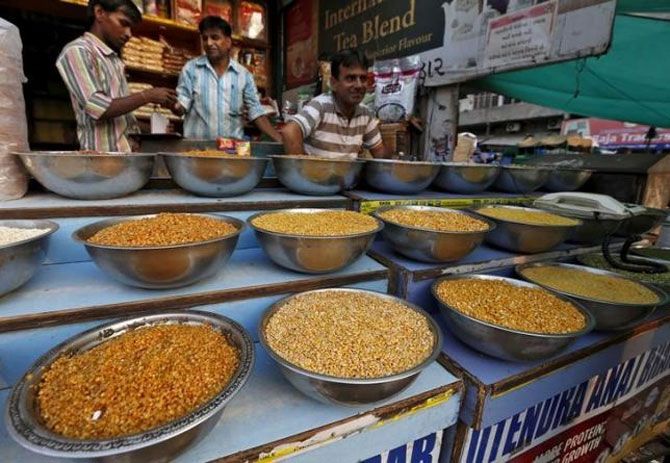
Centre forms panel on pulses crisis, expands buffer stock
To provide a long-term solution to India’s pulses crisis, the Centre on Monday constituted a high-powered panel under Chief Economic Advisor Arvind Subramanian to revisit the minimum support price and bonus mechanism, while at the same expanded the buffer stock by 1.2 million tonnes on hopes of a good harvest this year.
The committee would submit its report in the next two weeks.
The decision to constitute the panel and increase the buffer stock was taken at a meeting of senior government ministers chaired by Finance Minister Arun Jaitley.
Food Minister Ram Vilas Paswan and Urban Development Minister Venkaiah Naidu also participated in the meeting.
Briefing media after the meeting, Paswan said: “The government has decided to set up a committee under the chief economic advisor to frame a long-term policy on pulses, which will look into various options, including MSP and bonus… and frame an appropriate policy to promote cultivation of lentils in India.”
He expressed the hope that pulses prices would come down in the next two to three weeks.
The Centre had earlier planned to build a buffer stock of 0.15 million tonnes, which was later expanded to 0.8 million tonnes.
But, with pulses production in 2016-17 crop year expected to rise 18 per cent to 20 million tonnes, the size of the buffer has been raised.
The buffer would be maintained through domestic procurement and imports, with more emphasis on imports so as not to create a shortage in the local markets.
The meeting also decided to explore more avenues for import on a government-to-government basis and relaxed the stock-holding norms for importers for 45 days from the arrival of ships, after which the rules with kick in.
After Mozambique, the Centre is also looking at entering into long-term deals for import of pulses from Canada and Myanmar.
Last week, Prime Minister Narendra Modi signed a definitive agreement with Mozambique for import of 200,000 tonnes of arhar and tur on a government-to-government basis over a period of three years.
The pulses would be imported at MSP-plus freight.
“In my sense, production bonus is more fruitful compared to MSP,” said Paswan.
The government has already announced a sharp increase in MSP of kharif pulses for the 2016-17 crop year.
It is not clear if the government will announce more incentives for growers of pulses based on the panel’s report for the ongoing kharif season, or consider doing so for the rabi season.
Already, the government has procured 1.19 million tonnes of pulses such as tur in the 2016-17 crop year (July-June), which is being given to state governments for retail distribution at a subsidised rate of Rs 120 a kg.
Meanwhile, importers have alleged that local traders and producers have been illegally hoarding pulses, while they are being blamed for artificially raising the rates.
The importers also alleged the gap between ex-mill pulses prices and retail rates has widened in the past few months.
They alleged that a domestic trader has hoarded 30,000 tonnes of chana at the port and has delayed taking its delivery to push up prices.
“The chana, which was quoted at Rs 45,000 a tonne in December when the vessel arrived, is now quoting at Rs 80,000 as the traders simply did not take delivery in anticipation of a spike in rates,” the importers alleged.
The image is used for representational purpose only. Photograph: Reuters









